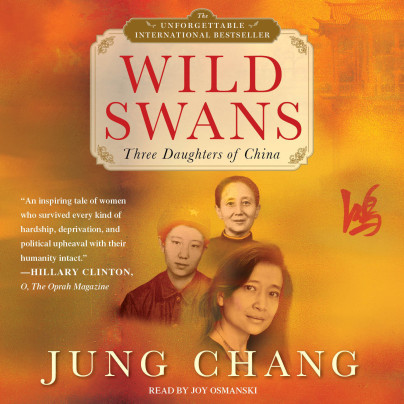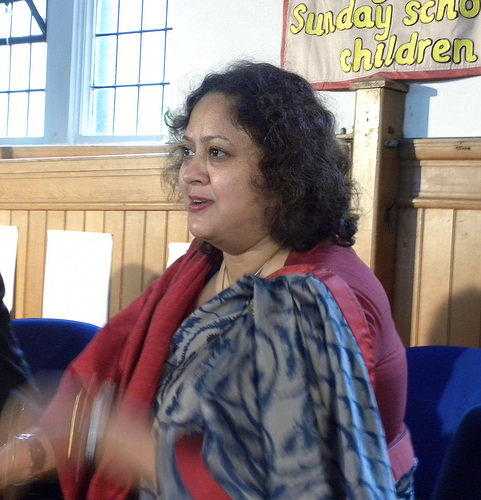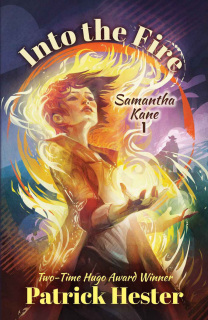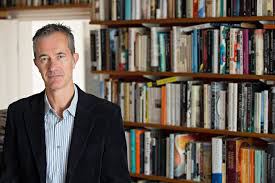Years ago, my wife read Boundaries, that classic book on interpersonal relationships by Henry Cloud and John Townsend. As often happens in marriage, my lovely bride wanted me to understand her more fully, and so she asked me to read the book as well. The opening chapter described a “day in the life” of an un-boundaried person, and I will never forget my incomprehensible response to that description: “Why would anyone live this way?” I was overwhelmed with a tragi-comic sense of disbelief that anyone would struggle to say ‘no’ in a way that so catastrophically inconvenienced his or her life.
I recall that experience because I had a similar reaction to an article I encountered this past month, called “Excommunicate Me from the Church of Social Justice.” The piece, written by one Frances Lee, a self-identified QTPOC (Queer Transgender Person of Colour who prefers the personal pronoun “they”), documents the angst and anxiety of life within the social justice movement. That piece had, to me, the same tragi-comic flavour—tragic, because the account of the insider life of a social justice advocate sounds horrible; comic, because I simply can’t imagine ever choosing to live that way.

Photo by Rogaz Gugus, from Flickr.
“It is a terrible thing,” Lee writes, “to be afraid of my own community members.” Why the fear? Lee is formally an insider by virtue of his/her/their gender and sexual identity. Furthermore, Lee is clear about his/her/their formal alignment to the critical list of modern causes, expressed in a desire to “obliterate white supremacy, anti-blackness, cisheteropatriarchy, ableism, capitalism, and imperialism.” What is the source of the fear, then? Lee writes:
It is the fear of appearing impure. Social death follows when being labeled a “bad” activist or simply “problematic” enough times. I’ve had countless hushed conversations with friends about this anxiety, and how it has led us to refrain from participation in activist events, conversations, and spaces because we feel inadequately radical.
It is, then, the fear of inadequate radicality—the fear of misalignment at the core of a given issue which is, de facto, defined by the experience of the other who holds all of the markers that define the cause. It is, presumably, the fear that generates strings of letters like LGBTTQQIAAP (lesbian, gay, bisexual, transgender, transsexual, queer, questioning, intersex, asexual, ally, pansexual)—which seem grounded in the horror that a category might possibly be left out. In response to this fear, Lee writes, “I am always ready to apologize for anything I do that a community member deems wrong, oppressive, or inappropriate—no questions asked.” This is a horror to me, simply because it doesn’t describe a relationship so much as a tyranny—the tyranny, in this case, of the self-identity of the offended which produces not so much a relationship as a hostage situation.
Neglecting these declarations bears real repercussions, such that “Punishments for saying/doing/believing the wrong thing include shaming, scolding, calling out, isolating, or eviscerating someone’s social standing.” You are either in, or out, and this is primarily because, Lee suggests, “dogmatic activism creates an environment that encourages people to tell other people what to do.” The end result, Lee reflects, is that “The amount of energy I spend demonstrating purity in order to stay in the good graces of fast-moving activist community is enormous. Activists are some of the judgiest people I’ve ever met, myself included.”
 As I read—and as I’ve thought about it over the past few weeks—my mind has gone to two places. The first was to remember Jung Chang’s Wild Swans: Three Daughters of China, which is the story of her life, her mother’s life, and her grandmother’s life as they span the events in China from before the revolution to the present day. Poignant in my memories from that book are her descriptions of her mother’s life during the Cultural Revolution, when everyday citizens had to labour to prove themselves sufficiently proletarian, to mask all vestiges of bourgeois identity. She documents how Chinese under Mao plucked grass by hand from outside their homes because grass itself was considered excessively bourgeois. In the midst of these horrors Chang recounts the system whereby one citizen could denounce another with an accusation of bourgeois sentiments or activities and destroy that person’s home, family, and livelihood in the process.
As I read—and as I’ve thought about it over the past few weeks—my mind has gone to two places. The first was to remember Jung Chang’s Wild Swans: Three Daughters of China, which is the story of her life, her mother’s life, and her grandmother’s life as they span the events in China from before the revolution to the present day. Poignant in my memories from that book are her descriptions of her mother’s life during the Cultural Revolution, when everyday citizens had to labour to prove themselves sufficiently proletarian, to mask all vestiges of bourgeois identity. She documents how Chinese under Mao plucked grass by hand from outside their homes because grass itself was considered excessively bourgeois. In the midst of these horrors Chang recounts the system whereby one citizen could denounce another with an accusation of bourgeois sentiments or activities and destroy that person’s home, family, and livelihood in the process.
The second place my mind has gone is to C.S. Lewis’s essay, “The Inner Ring.” There, Lewis describes the social phenomenon of insiders and outsiders, and especially insiders and outsiders where the key identity markers of a group is that “we” exist by virtue of a “them.” And yet within this the boundaries for what marks inside and outside are not necessarily clear. A given individual has a clear sense that certain people are “in the know,” that he is not one of those in the know, and that he must do all he can to get himself in the good graces of those in the know so that he can be part of the inner ring himself. And yet even these boundaries are unclear, because there is always a ring within the ring, a circle within the circle, where the mystic source of true power lies. It is an image of community that is in fact a pure expression of hellish divisiveness. It is also a picture that Lewis puts to powerful effect in his novel, That Hideous Strength.
The correlation between Mao’s China, Lewis’s Inner Ring, and Lee’s “church of social justice” are hopefully clear. They are also ironic. In all three situations, groups with the ostensible purpose of coming together for some greater good (political, institutional, social) by virtue of their subjective nature in fact perform the opposite of that good. In the process, the mechanics by which humans collaborate are utilized hellishly, so fellowship collapses into fear, understanding gives way to uncertainty, and identity into fractiousness. To further this irony, Lee’s title suggests that his/her/their experiences of insider activist life correlate to an experience of the church, and this is teased out with references to dogma, purity, and the like. However, if you read the article (and I think you should), I think you’ll find that the metaphor simply doesn’t play out. Lee’s experience correlates to no church that I’ve ever known or experienced, and perhaps only marginally to some churches I’ve heard about in certain horror stories. And yet, Lee’s experience within social justice activism (as testified by comments on the piece) appears to resonate strongly with a broad range of likeminded people. Lee’s experience, while apparently normative for social justice, is abnormal for the church (and when it does happen the church has recourse to call it out and correct it).

Photo by Brenda Gottsabend, from Flickr.
I suspect that the key difference between the church of social justice and that of Jesus Christ is one of subjectivism and objectivism. On a subjective scale of values, the “other” always holds the cards of self-definition, issue-definition, and, of course, authority on a given narrative of pain or injustice. On an objective scale of values, a given thing external to both you and me becomes the standard by which actions and persons are judged. For Christian communities, this external thing ought to be the Scriptures and Tradition, and it seems clear that when churches slip into the kind of aberrant inner-ring, witch hunting relationships, it does so by ignoring the objective standards and projecting a subjective one on others.
“This is what the Lord says,” cries Jeremiah (6:16), “Stop at the crossroads and look around. Ask for the old, godly way, and walk in it. Travel its path, and you will find rest for your souls.” For a given issue, I have my marching orders—seek the ancient, godly path and walk in it. I need no anxiety, no nail-biting, no fear that I am conforming to the subjective projections of my peers, because, fundamentally, they too are called to seek those ancient paths, and, in fact, we are called to walk them together. In that mutual walking, we have common recourse to our text and tradition; these sources help us to adjudicate any and all disagreements. Of course, we can always ignore God’s ways—something that Jeremiah goes on explicitly to say in the very next phrase. He finishes (or rather the Lord finishes), “But you reply, ‘No, that’s not the road we want!’”
I’m grateful, for what it’s worth, to have been given the opportunity to see the inside of Lee’s world for this short time, if only because our world is increasingly divided and siloed. In this, my intention has not been to pass judgment, but simply to reflect upon and identify what is the tragic, strange world which many of my more liberal friends appear to inhabit. I find in them an admirable, rich desire for justice. And yet, to their desire, a question remains: “Which Justice?” If you give an objective answer—one that stands in judgment over both you and I in equal measure—then that objective judgment has become in that moment tyrannical and oppressive, if only in regard to the injustice of our previous thoughts and actions. There can be no justice, in other words, without power, some kind of domination, and without an objective standard with which to negotiate these activities. And this, for my liberally minded peers, may be the greatest tragedy of all—that the further they move from the Author of justice, the further their desire extends beyond their reach.
Share this:





